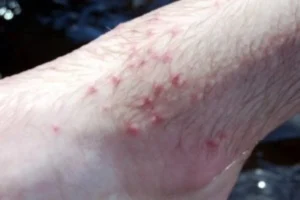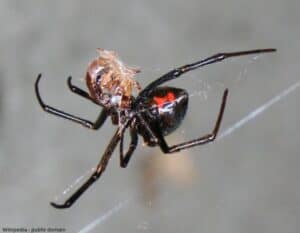Farming Aphids – Herder Ants
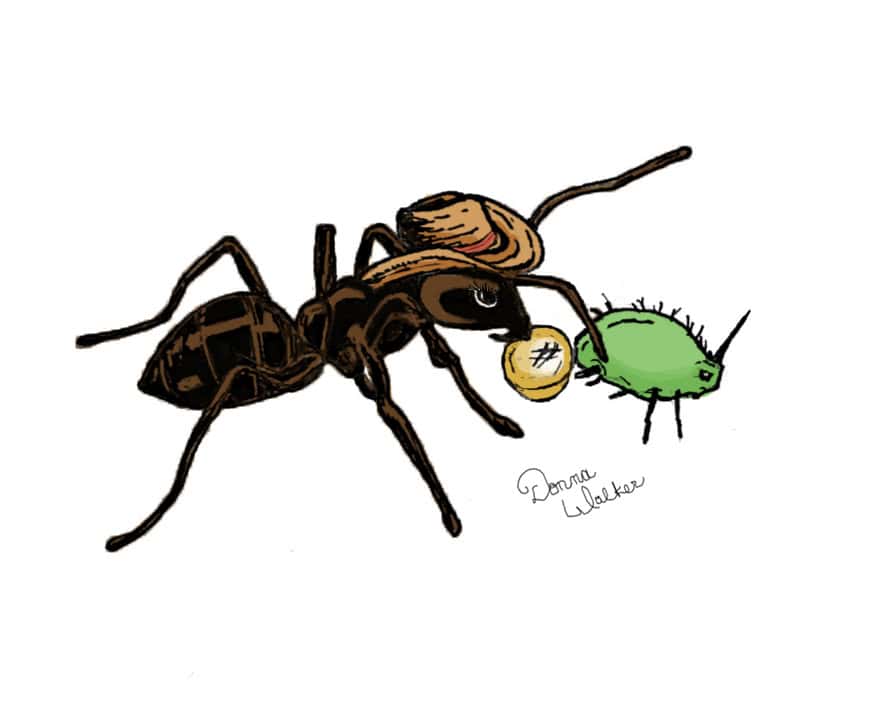
If you have ants on your plants, you’re sure to find aphids doing their ‘sugar-bum’ dance. …
It’s spring! Flowering plants, green grass, farmer ants, and dancing aphids. …
Have you ever noticed areas on your plants and shrubs where the leaves are starting to curl and turn odd colors?
If so, did you also see some ants crawling over and under the leaves?
Next time you’re out watering or weeding, take a look at the underside of a few leaves – most likely you’ll find herds of aphids being “corralled” by farmer ants a.k.a. Herder ants.
Processing and Milking Honeydew
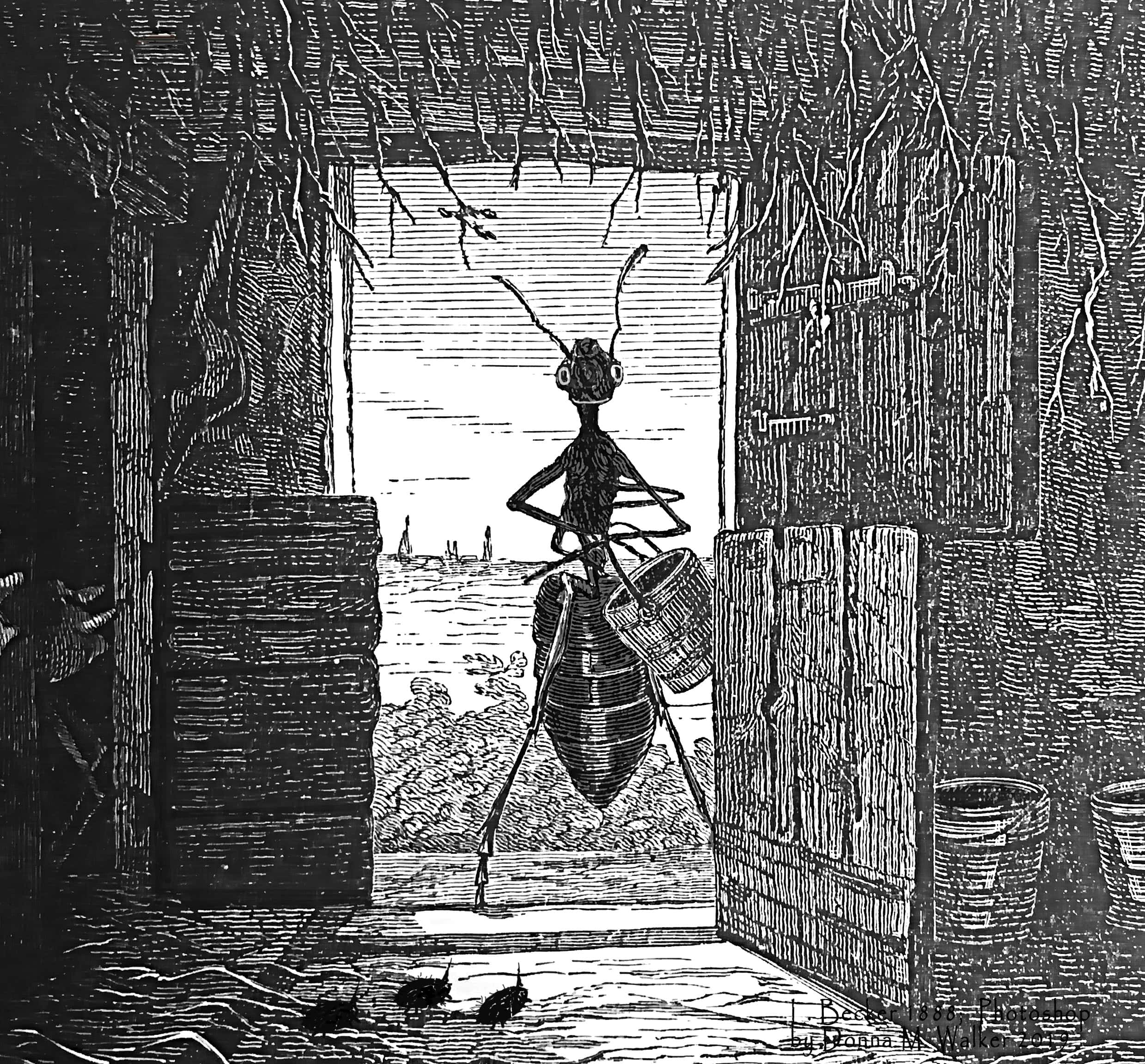
Another name for aphids is “plant lice.” They destroy plants a couple of different ways; one is by sucking the nutrients from leaves and stems, the second is a byproduct of the first.
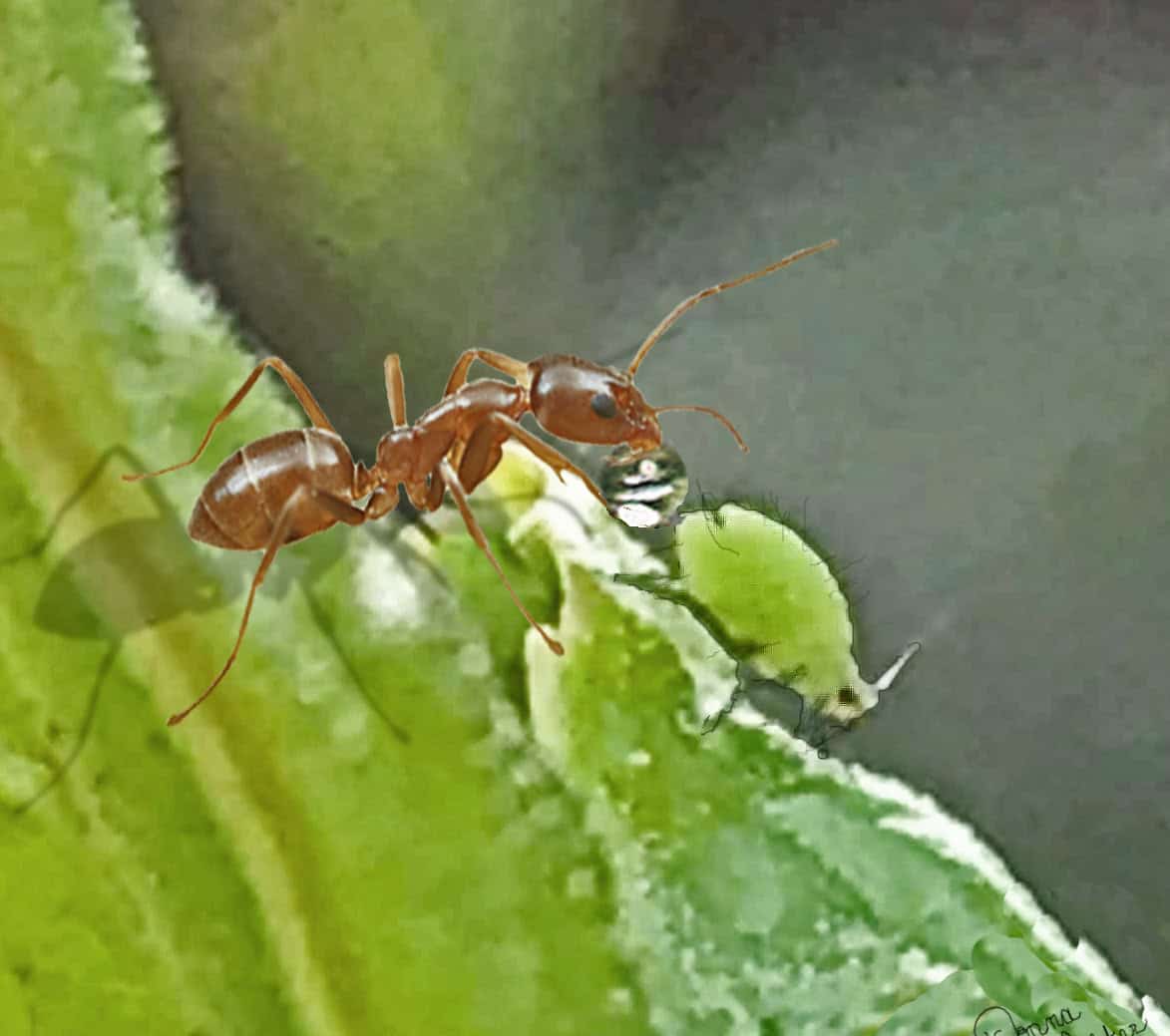
The sap from plants, once ingested by an aphid, turns into a sugary substance referred to as “honeydew.”
In order to “milk” an aphid, all an ant has to do is stroke the aphid’s back and wait for it to release a drop of honeydew into her mouth.
The Relationship between Ants and Aphids
Ants and aphids have a special relationship, mutualistic in nature – they each benefit from one another; ants protect aphids and aphids feed ants.
Aphids feed their farmer ants a sweet honeydew liquid in exchange for protection from predators.
Ants Farming Aphids
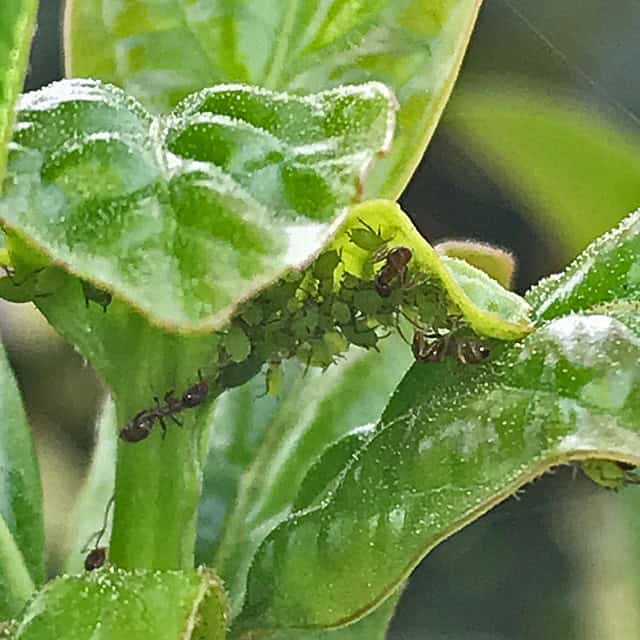
Ants actually “herd” aphids underneath the leaves of a plant, forming a sort of corral that includes any aphid eggs they find as well. Aphids need constant tending in order to keep them from straying above where they can be seen by predators.
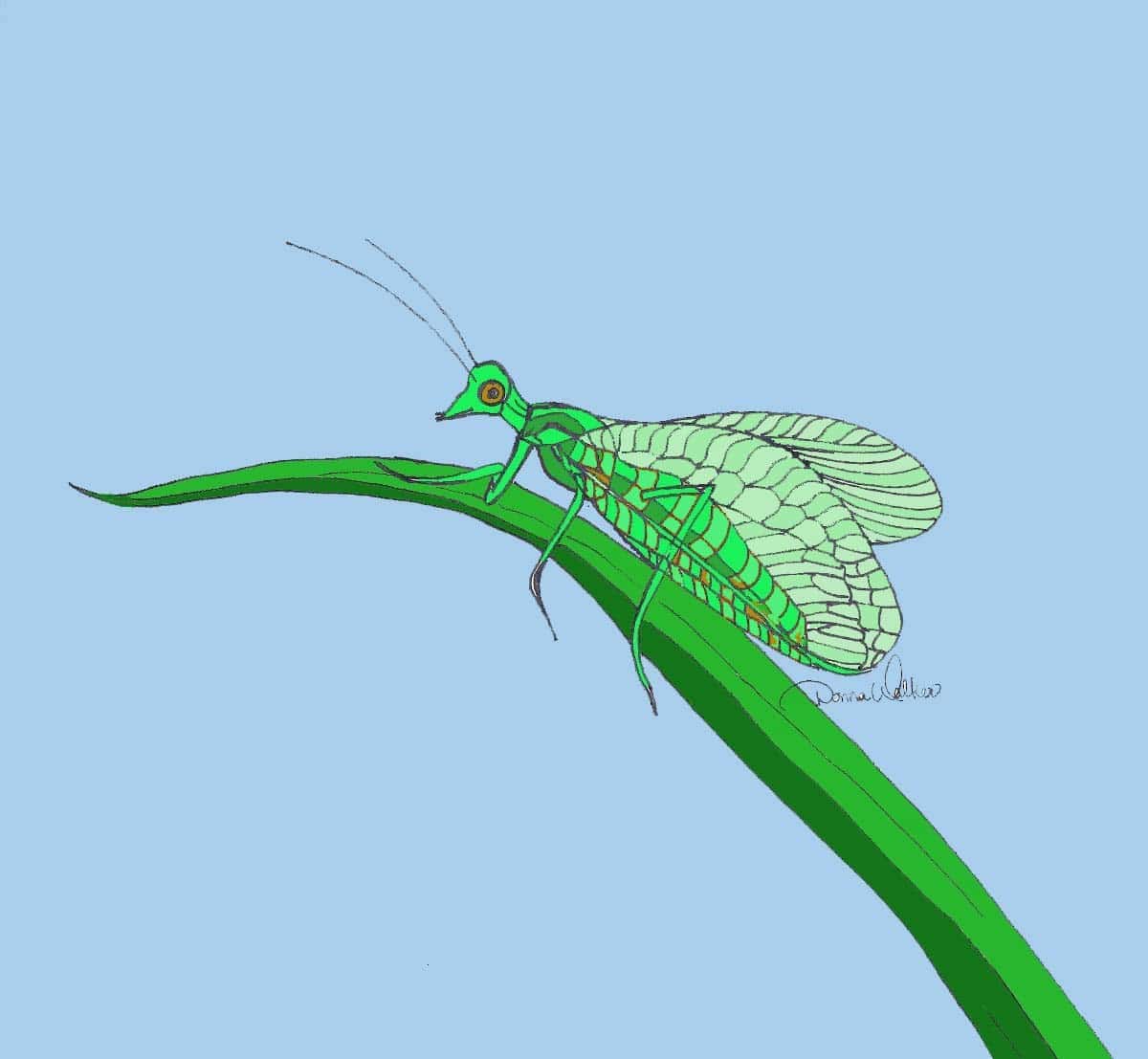
Predators of aphids include lacewings, ladybugs and ladybird larva, parasitic wasps, birds, and hoverfly (flower fly) larva.
These flying, crawling enemies may not notice the plump juicy aphids hiding underneath the leaves of your shrubs because they’ve been herded there by farmer ants.
Keeping up the farm and regularly tending to their “milch-cows” (aphids), provides ants a way to supply their whole colony with honeydew.
Ants + Aphids = Plant Damage
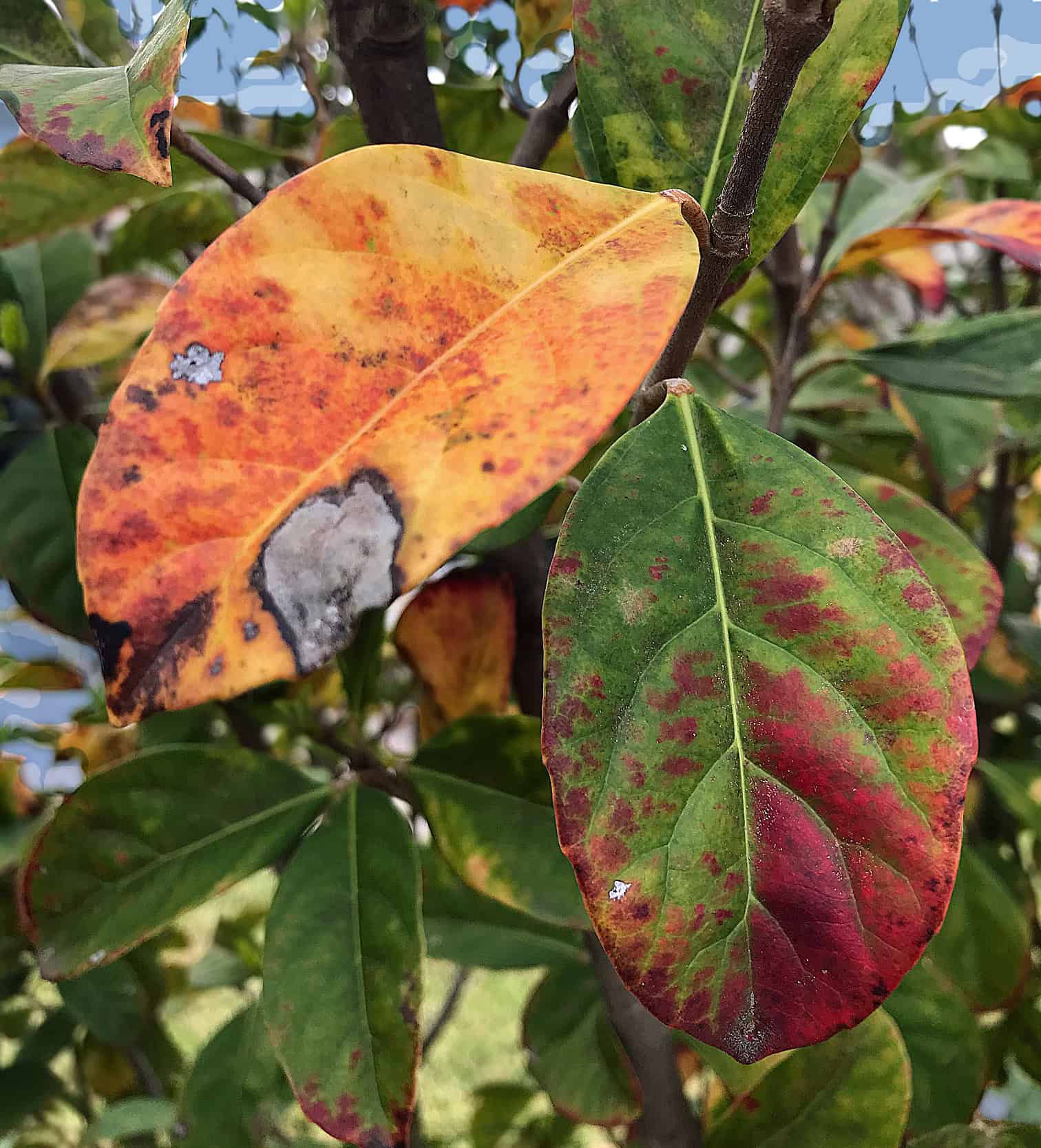
Should you really care if you have ants and aphids on your plants? It depends on whether or not you’re concerned about the health of your garden and how it appears.
If you don’t mind curling, discolored leaves, sooty mold, and fallen leaves then by all means, ignore the aphid farm you just found!
Once an aphid farm has used up all its resources and the herding ants have left the “barn,” what’s left are orange and yellow leaves spotted with brown from dried up sticky honeydew that’s been burned up by the sun.
Old honeydew can also turn into black sooty mold and fungus. The result is unsightly leaves and stunted plant growth.
Ants + Aphids = Potential Home Invasion
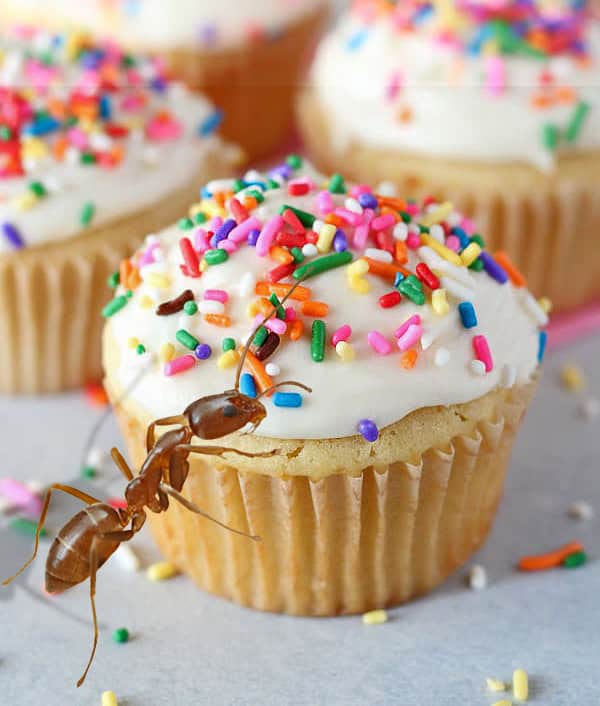
If your herd of aphids and farmer ants are near the side of your home and the aphids have expired and the honeydew is gone, you can count on the ants marching into your home in search of another food source – your pantry.
In southern California, it’s usually Argentine ants that do the farming.
This species is one of the most difficult to control because of their multiple queens.
Take a look at this short snippet of Argentine ants herding aphids. Notice the aphids wiggling their rears!
Landscape and Ant Treatment
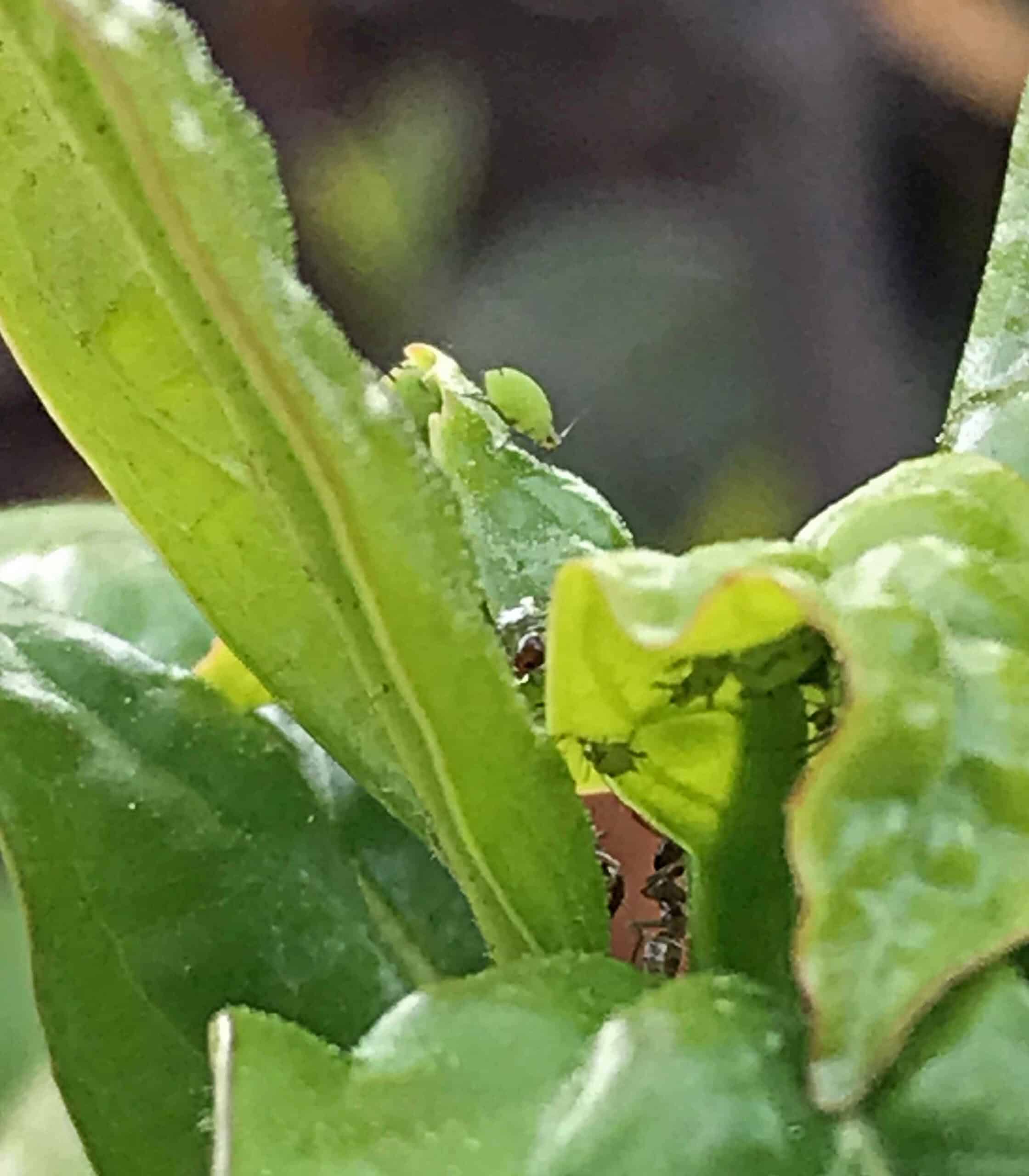
Aphids are a Landscape and Garden pest while ants are both indoor and outdoor pests. If your garden is overrun by aphids, you’ll need to get rid of their protectors – the ants.
Treating your plants and shrubs on a regular basis will keep both aphids and ants away. There are do-it-yourself methods of controlling aphids such as spraying them with dish soap but that doesn’t necessarily get rid of the ants.
Farmer ants will set up business, down the shrub a little ways, where they’re sure to find a couple of stray aphids to herd and corral under a different set of leaves. …
Hearts Pest Management to the rescue! We have a wonderful landscape pest management service that utilizes Green / Organic Pest Control.
Get rid of the farmer ants and the aphids at the same time and enjoy a healthy, beautiful garden!
Call today for more information on our organic pest control services at 800-986-1006. You’re also welcome to complete our contact form and a caring Hearts Pest Management representative will contact you shortly.

